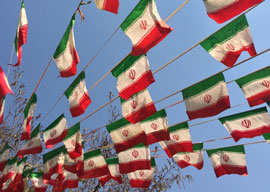
January 19, 2016

Source: Shutterstock
To save Communism, Deng decided to embrace state capitalism.
And as there is nothing new under the sun, Deng had a model.
In 1921, in the wake of Russia’s crushing defeat in the Great War and bloodletting in the Civil War between “Reds” and “Whites,” Lenin saw his regime imperiled by a rising revolution against the Bolsheviks.
He dumped “war Communism” for a New Economic Policy, opened Russia to Western investors, while assuring the comrades that the capitalists “will sell us the rope with which we will hang them.”
Similarly, Iran’s regime seems to have concluded that the path to power and permanence of the regime lies not in conflict with the United States, but in avoiding conflict—and taking the China road.
President Hassan Rouhani, who also sees Iran’s future as best assured by resolving the nuclear issue and reengaging with the West, described his triumph to the Iranian parliament:
“All are happy except Zionists, warmongers, sowers of discord among Islamic nations and extremists in the U.S. The rest are happy.”
If this deal is truly in the interests of the United States and Iran, whose interests would be served by scuttling it? Who seeks to do so?
And why would they want a return to confrontation and perhaps war?